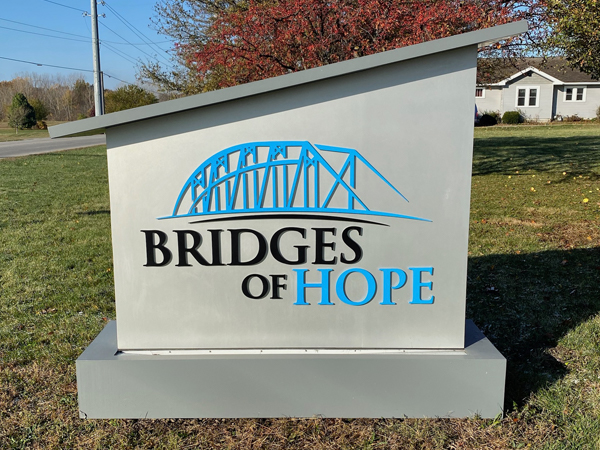DRUG and alcohol
TREATMENT PROGRAMS
Premier Drug & Alcohol Addiction Treatment Programs in Indiana
Bridges of Hope offers a variety of programs and therapies that can be personalized for you or a loved one who needs help recovering from alcohol addiction.
Patients who choose to receive treatment from a Joint Commission-accredited drug rehab center like Bridges of Hope can benefit from knowing that our organization is continually working to provide the highest quality services, including science-backed treatments such as drug and alcohol detox with FDA-approved medications. Patients can feel confident knowing the facility offers a safe, therapeutic environment that promotes a healthy and fulfilling recovery from addiction. According to a 2008 study published in the Journal of Health Psychology, patient satisfaction in substance abuse treatment programs is a positive sign of a successful long-term outcome.
Here’s a closer look at the types of treatment programs at Bridges of Hope and what you can do next to get started with recovery.
Medical Detox
Over time, using some substances will create dependence. This means your body has adapted to always having the drug in your system and doesn’t know how to function without it, leading to painful and sometimes life-threatening withdrawal symptoms.
Drug detox will help you overcome these symptoms as comfortably as possible. You’ll get care from a team of medical professionals who will monitor your condition and do what they can to relieve your symptoms. In many cases, this involves receiving medications to alleviate your pain.
Inpatient Residential Rehab
With inpatient treatment, you’ll live at a facility while you’re receiving help for your substance abuse. Inpatient treatment can be long-term or short-term in nature. Generally, treatment programs last 28 days. Inpatient treatment also covers recovery housing, which includes room and board while you learn how to get back on your feet in recovery.
These drug abuse programs teach you to re-socialize in healthy ways, as you’ll be a part of a community of like-minded individuals going through the same issues as you. Because the environment is very structured with 24-hour care, this is a good option for more serious addictions.
Individual and Group Counseling in Residential Rehab
Individual and group counseling helps you learn skills related to your recovery. You might talk about your past behaviors and ways to prevent them in the future. Generally, this counseling includes:
- Cognitive-behavioral therapy, which helps you stop your patterns of negative thinking so you can avoid drug use.
- Motivational enhancement therapy, which helps you plan goals for the future and work towards them.
- Contingency management, which rewards you for reducing negative behaviors.
- 12-step programs, which let you talk about your recovery in a group setting.

Outpatient Treatment Programs
When you’ve completed a residential recovery program, you can still benefit from ongoing care and support. That’s why we’ve created a three-tier program of outpatient recovery, allowing clients to continue receiving the high-quality care they need while gradually becoming more independent. If you’re considering returning back to “normal life” after residential treatment, you may benefit from the structure and guidance of an outpatient program first.

Outpatient Treatment Programs
Learn more about our outpatient treatment options
Recovery Support Services
Recovery support services are non-clinical in nature and are provided by peers who have also gone through addiction. These services might include:
- Self-help groups.
- Specialized living environments.
- Educational or employment support.
- Transportation to and from treatment.
Choose Bridges of Hope for Addiction and Co-Occuring Disorder Treatment
Bridges of Hope offers drug detox, alcohol detox, and a variety of residential rehab programs that help people safely recover from substance use disorders.
Call us today at 765-358-7320 to learn more about our many different treatment programs and begin the admissions process. Or, fill out our free insurance benefits form to learn more about your available treatment options.


 Verify Insurance
Verify Insurance
 Toll Free Call
Toll Free Call